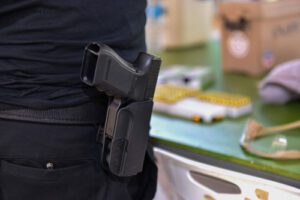 The District court continued: The Third Circuit has also made clear that “preliminary injunctive relief is ‘an extraordinary remedy’ and ‘should be granted only in limited circumstances.’” Kos Pharms., Inc. v. Andrx Corp., 369 F.3d 700, 708 (3d Cir. 2004) (quoting American Tel. & Tel. Co. v. Winback & Conserve Program, Inc., 42 F.3d 1421, 1427 (3d Cir.1994)). Relatedly, temporary restraining orders have the same requirements and are “stay-put orders designed to maintain the status quo during the course of proceedings. They ‘function, in essence as an automatic preliminary injunction.’” J.O. ex rel. C.O. v. Orange Twp. Bd. of Educ., 287 F.3d 267, 272 (3d Cir. 2002) (quoting Drinker v. Colonial Sch. Dist., 78 F.3d 859, 864 (3d Cir.1996)). However, relevant for purposes of appeal, “a party cannot be a prevailing party if the interim relief received is not merit-based.” Id. at 273 (citations omitted).
The District court continued: The Third Circuit has also made clear that “preliminary injunctive relief is ‘an extraordinary remedy’ and ‘should be granted only in limited circumstances.’” Kos Pharms., Inc. v. Andrx Corp., 369 F.3d 700, 708 (3d Cir. 2004) (quoting American Tel. & Tel. Co. v. Winback & Conserve Program, Inc., 42 F.3d 1421, 1427 (3d Cir.1994)). Relatedly, temporary restraining orders have the same requirements and are “stay-put orders designed to maintain the status quo during the course of proceedings. They ‘function, in essence as an automatic preliminary injunction.’” J.O. ex rel. C.O. v. Orange Twp. Bd. of Educ., 287 F.3d 267, 272 (3d Cir. 2002) (quoting Drinker v. Colonial Sch. Dist., 78 F.3d 859, 864 (3d Cir.1996)). However, relevant for purposes of appeal, “a party cannot be a prevailing party if the interim relief received is not merit-based.” Id. at 273 (citations omitted).
The Second Amendment states that “[a] well-regulated Militia, being necessary to the security of a free State, the right of the people to keep and bear Arms, shall not be infringed.” U.S. Const. amend. II. In Bruen, the Supreme Court rejected the two-step approach adopted by many of the Courts of Appeals to assess Second Amendment claims, abandoning the second step of the analysis at which courts “applied means-end scrutiny in the Second Amendment context.” 142 S. Ct. at 2127. Relying on its precedential decisions in Heller and McDonald, the Supreme Court explained that it had not once, but twice “declined to engage in means-end scrutiny because ‘the very enumeration of the right takes out of the hands of government—even the Third Branch of Government—the power to decide on a case-by-case basis whether the right is really worth insisting upon.’” Id. at 2129 (quoting District of Columbia v. Heller, 554 U.S. 570, 634 (2008) (emphasis in original)); see also McDonald v. Chicago, 561 U.S. 742, 790-91(2010) (explaining that the Second Amendment does not permit “judges to assess the costs and benefits of firearms restrictions” under a means-end scrutiny analysis).
The “takes out of the hands of government” language is a nod to the fact that the right to bear arms exists in large part to protect the people from the Government. That is why an “unlawfully” possessed firearm in the home is not a basis for a criminal charge in New Jersey unless the possessor is a “certain person” who was previously convicted of one of a particular serious felony.
